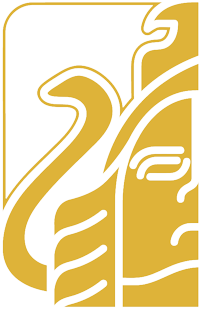
Emerging Markets - Quantum Sensing - M&A - Mergers & Acquisitions
Sensor technology is on the verge of a revolution thanks to quantum sensing, an emerging field that exploits quantum properties to measure physical quantities with unprecedented precision. This innovation promises to transform critical sectors such as healthcare, defense, and electronics, opening new frontiers for measuring and monitoring environmental and biological phenomena.
Quantum sensing relies on quantum states, such as superposition and entanglement, to detect minute physical variations that escape traditional sensors. This technology is susceptible to environmental changes, allowing the detection of subtle variations with a degree of accuracy previously inaccessible. Applications range from navigation to telecommunications and scientific research. For example, quantum sensors could significantly improve medical diagnostics in healthcare by detecting minimal changes in biomarkers.
The roots of quantum sensing lie in the principles of quantum mechanics developed in the early 20th century. However, the practice of quantum sensing has only begun to take shape with the advancement of quantum technologies and nanotechnology. Recent progress in these fields has led to the creation of devices that leverage quantum properties to achieve precision and sensitivity once thought impossible.
Examples of quantum sensing technologies include atomic clocks, which use the properties of atoms such as cesium or rubidium to keep time with extreme precision, essential for GPS navigation and scientific research. Magnetometers measure magnetic fields through the quantum states of atoms or ions, finding applications from geology to medical diagnostics. Gravitometers measure gravitational fields, supporting geophysical explorations and improving navigation systems independent of satellite technology. Interferometers use interference patterns of photons for precise measurements of lengths or distances, crucial for metrology and precision engineering. Quantum thermometers offer highly accurate temperature measurements essential for materials science and food safety. Chemical sensors detect specific chemical compounds with high precision, which is beneficial in environmental monitoring and medical diagnostics. Imaging sensors create high-resolution images using photons or atoms with medical diagnostics and surveillance applications.
The potential of quantum sensing is vast and spans various sectors. In defense, for example, quantum sensors refine surveillance and detection capabilities, such as detecting magnetic anomalies to locate metallic objects. This technology could also be used to improve object detection in autonomous vehicles. In the automotive sector, quantum sensors could enhance the perception of surroundings by self-driving cars. In healthcare, the development of portable MRI machines is a promising example of how quantum sensors could expand the accessibility of medical care. The electronics industry values the precision and reliability of quantum sensors for chip quality control, allowing faster scans and higher resolution of defects. The aerospace industry could also benefit from quantum sensing for improved inertial navigation, especially when satellite systems are unavailable.
Despite its promises, quantum sensing still faces several challenges before achieving widespread commercial adoption. Many quantum technologies are currently confined to research laboratories, and it is expected to take several more years before they become commonplace. One of the main obstacles is the high initial and operational costs. Additionally, the high sensitivity of quantum sensors makes them vulnerable to environmental interference, complicating their integration into existing systems that require constant precision for safety and regulatory compliance.
Though still in its early stages, the quantum sensing market is attracting growing interest from investors. Most investments focus on seed and early-stage funding, with deal values typically under $5 million. The consistent growth in deal activity suggests increasing market confidence. For example, Quantum Diamonds, a German startup specializing in diamond-based sensors for extreme environments, raised $7.5 million in a seed funding round in November 2023. Another example is Nomad Atomics, based in Australia, which secured $10 million in early-stage funding in July 2023 to develop high-precision gravimetric sensors for geophysical exploration and the mining industry.
According to a report by PitchBook, venture capital activity in the sector is growing. In 2023, over $129 million were invested globally in this field, marking a significant increase compared to previous years. Other sources also confirm this trend. An analysis by BCG highlights how quantum sensors, unlike quantum computers, are already used in practical applications, further stimulating investor interest. Additionally, the involvement of significant government institutions like the US Department of Defense and NASA, which have made numerous investments in quantum sensing companies, demonstrates this technology's strategic importance and potential for the future.
Quantum sensing represents a fascinating frontier of technology, potentially radically changing how we measure and monitor our world. While it still faces significant challenges, the path to its widespread adoption looks promising, supported by continuous technological advances and increasing investments.

 News
News